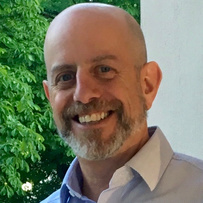Abstract:
“AI will transform all aspects of military affairs… In the future, warfare will pit algorithm against algorithm.” –National Security Commission on AI, Final Report, March 2021
As is true in almost every other field, artificial intelligence is being applied to military activities, both for routine logistical tasks and front-line war-fighting. Looking forward, it is likely that AI will play an ever-increasing role in combat operations. This, in turn, has raised questions about the legal and moral implications of endowing machines with a capacity to choose targets for attack with limited or no human control. Some countries, including the U.S., contend that AI-enabled weapons can be made safe and reliable; more than 80 others have called for new international law prohibiting and regulating such systems.
This panel will address such questions as: How is AI being applied to warfare now, and how might it be applied in the future? How will this affect the conduct of war and its escalatory potential? What are the legal and ethical questions raised by the fielding of autonomous weapons systems? What steps are being taken to regulate or prohibit the deployment of such weapons? What can students do to help advance these goals and better protect humanity?
Michael Klare

Panelist: Michael Klare is professor emeritus of peace and world security studies at Hampshire College. He now serves as a Senior Visiting Fellow at the Arms Control Association in Washington, D.C., where he studies the impact of emerging military technologies on the future of war and arms control. He is the author of 15 books, including, Resource Wars, The Race for What’s Left, and, most recently, All Hell Breaking Loose: The Pentagon’s Perspective on Climate Change. Klare is the Defense Correspondent of The Nation magazine his articles US military policy and global resource competition have appeared in Foreign Affairs, Newsweek, The New York Times Sunday Review, Scientific American, Technology Review, and other publications.
Bonnie Docherty

Panelist: Bonnie Docherty is a Senior Researcher in the Arms Division of Human Rights Watch. She is also a Lecturer on Law at Harvard Law School’s International Human Rights Clinic and Director of its Armed Conflict and Civilian Protection Initiative. Docherty has done extensive work in the field of humanitarian disarmament as lawyer, field researcher, and scholar. She has written widely on the problems posed by the autonomous weapons, the proposed elements of a new treaty to prohibit and regulate them, and the process for negotiating such a treaty. Docherty has also been involved in the negotiation and implementation of the 2008 Convention on Cluster Munitions, the 2017 Treaty on the Prohibition of Nuclear Weapons, and the 2022 Political Declaration on the Use of Explosive Weapons in Populated Areas.
Eleonora Mattiacci

Panelist: Eleonora Mattiacci is an Assistant Professor of Political Science at Amherst College, where she runs the IRLab @Amherst College. She researches conflict in world politics. Her book, Volatile States in International Politics (Oxford University Press, 2023), explores how power and interests combine to stir states toward behaving in an unpredictable, volatile manner. Her peer-reviewed research has been published in outlets such as British Journal of Political Science, International Interactions, International Studies Quarterly, Journal of Conflict Resolution, Journal of Peace Research, and Perspectives on Politics. She is currently working on a book manuscript on when and why humans embrace scorched earth policies during wars.
Scott Alfeld

Panelist: Scott Alfeld is an Assistant Professor of Computer Science at Amherst College. His primary research is focused on adversarial methods. He investigates the security ramifications of using AI and data analysis methods in domains consisting of a diverse set of (potentially adversarial ) agents and work to harden systems against manipulation attacks. Before coming to Amherst, he taught computer science and public speaking/debate professionally in Salt Lake City, UT and Madison, WI. As a volunteer, he gave guest lectures for courses from the Wisconsin Center for Academically Talented Youth (WCATY, a non-profit organization offering courses for advanced students in grades 2 through 12) and taught locksport (recreational lock-picking and related physical security topics) through Sector67 in Madison.
Dr. Lee Spector

Moderator: Dr. Lee Spector is the Class of 1993 Professor of Computer Science at Amherst College, Adjunct Professor and member of the graduate faculty at the U. Massachusetts, Amherst, and Professor Emeritus at Hampshire College. He received a B.A. in Philosophy from Oberlin College and a Ph.D. in Computer Science from the University of Maryland. His research and teaching focus on artificial intelligence and intersections of computer science with cognitive science, philosophy, physics, evolutionary biology, and the arts. He is Editor-in-Chief of the Springer journal Genetic Programming and Evolvable Machines, Associate Editor for the ACM Transactions on Evolutionary Learning and Optimization, and editorial board member for the MIT Press journal Evolutionary Computation. Among the awards that he has received is the highest honor bestowed by the U.S. National Science Foundation for excellence in both teaching and research, the NSF Director’s Award for Distinguished Teaching Scholars. At Amherst College, aside from his teaching and research, he directs the initiative on Artificial Intelligence in the Liberal Arts.
